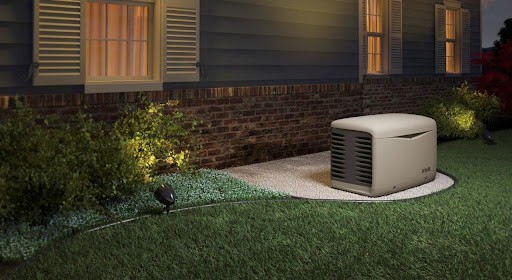The residents of New England are no strangers to thunderstorms. Long winters, in particular, present another threat to the power system, which can lead to power outages. Nobody looks forward to a power outage—they’re inconvenient, leave you unprotected from the elements, and can even cause damage to your home and appliances.
However, there’s a simple way to avoid these consequences: a generator.
What Generator Should You Get?
People are often apprehensive about picking the right generator, and for good reason. It’s important to make the right choice based on your practical and personal needs. Read on to learn about the different types of generators available, so you can make an informed choice.
There are two types of generators: standby and portable.
Standby Generator
A standby generator is a stationary generator that starts automatically when a power loss is detected. It provides power backup during an emergency or blackout. It may be used for residences, renovations, industrial purposes, etc. They are available in multiple sizes and capacities. Most are fueled by either natural gas or propane.
Advantages
The prime advantage of a standby generator is its capacity. Although it depends on the size of the generator, it makes for a valuable investment. Moreover, it uses your natural gas line or propane to operate. That means it runs as long as you have a gas supply. The generator can also activate automatically during power failure to ensure uninterrupted power, keeping you safe during a blackout or storm.
Considerations
Whole house generators tend to cost considerably more than portable options.

Portable Generator
As the name suggests, a portable generator is not confined to any particular location. It may be shifted when needed. Ideally, it is for low power requirements or when you require power during high mobility circumstances.
Advantages
The primary benefit of a portable generator is that you can use it whenever and wherever you need it. Since it isn’t confined to your residence or office, it can be used during camping trips and in remote locations. It’s also cheaper than a standby generator.
Finally, a portable generator ensures you will always have power without an external fuel source.
Considerations
Whole house generators tend to cost considerably more than portable options.
A portable generator may not automatically start during a power outage. You will need to operate it manually and connect it manually to the equipment. You will also have to add fuel as needed.
Which Is Better?
Both standby and portable generators come with their pros and cons, so ultimately, it depends on your needs. If you’re looking for a generator for your house, a standby generator might be more appealing. But if you regularly move, or only need to run essential circuits and appliances during a blackout, you’d probably find that a portable generator meets your needs.
If you have any questions or want to learn more about which generator is best for you, get in touch with Klostermann Electric LLC!
We provide electrical services and Generator installations in Greater Boston and the Merrimack Valley.
